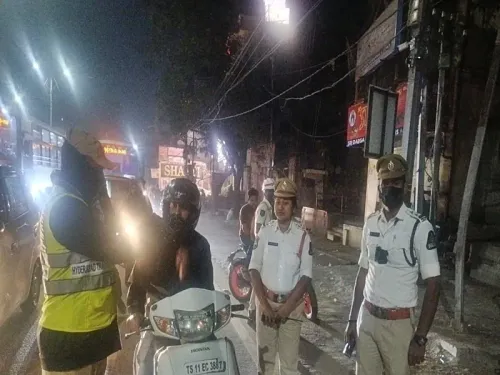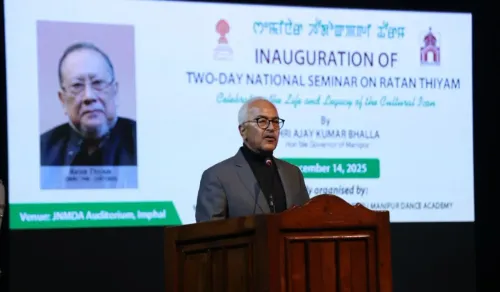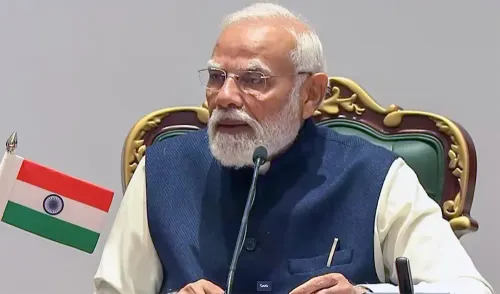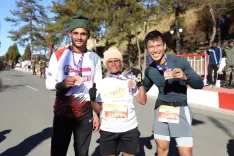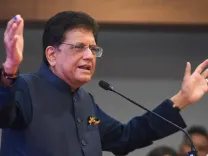Is the Killing of Top Maoist Basavaraju a Historic Achievement?
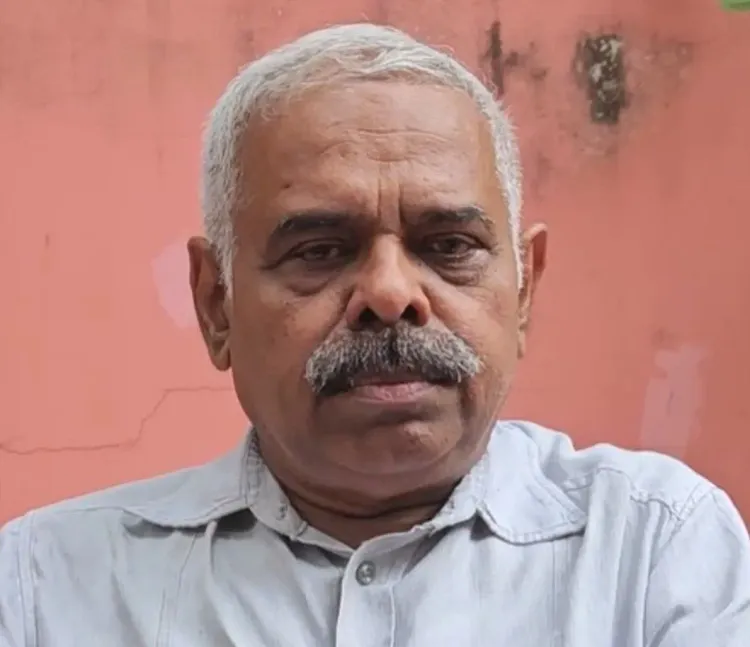
Synopsis
Key Takeaways
- The killing of Basavaraju is a historic achievement in the fight against Maoism in Chhattisgarh.
- Intelligence and strategic planning were key factors in the success of the operation.
- The establishment of the District Reserve Guard has enhanced operational capabilities.
- There is optimism regarding the potential eradication of Maoism by December 2025.
- Government willingness for peace talks exists, but conditions need to be met.
Raipur, May 22 (NationPress) Celebrating the successful operation by security forces that led to the demise of top Maoist Nambala Keshav Rao, also known as Basavaraju, former Chhattisgarh Police Chief D.M. Awasthi labeled it a ‘historic’ success. He emphasized that this incident marks the first-ever gun-battle in which a rebel of general secretary rank has been eliminated.
In a special conversation with IANS, Awasthi commended the intelligence operations that facilitated this mission, asserting that the government appears poised to conclude Maoism well ahead of the anticipated deadline of March 31, 2026.
Key excerpts from the interview:
IANS: How do you assess the recent anti-Maoist mission that ended with the killing of Nambala Keshav Rao in the Abujhmarh forests?
Awasthi: I consider Wednesday's anti-Maoist mission to be the most triumphant in the history of Chhattisgarh. Until now, no Maoist of the 'General Secretary' caliber has been killed in an encounter within the state.
The operations conducted over the past year, particularly Wednesday's, should be recognized as a milestone or a record. This represents a significant victory.
IANS: Given that Basavaraju was heavily guarded by around 50 Maoists, what challenges did security forces face in neutralizing him?
Awasthi: The force's intelligence inputs were commendable. It is essential to acknowledge the quality of the intelligence information. The strategic planning executed to eliminate such a prominent leader was also exceptional. Despite his extensive security, with approximately 30-50 bodyguards who were trained commandos, the successful breach of their defenses is a remarkable achievement in India's anti-Maoist operations.
IANS: How has the establishment of the District Reserve Guard (DRG) in Chhattisgarh in 2015 impacted anti-Maoist efforts?
Awasthi: In 2014, with the Modi government coming into power, a policy to eradicate Maoism was initiated. At that point, Raman Singh was the Chief Minister of Chhattisgarh, and the DRG was formed in 2015. In 2016, we expanded the DRG with more recruits and offered specialized training, which proved beneficial.
These recruits received advanced training in jungle warfare from prestigious Indian institutions. By the end of 2016, the entire force was fully equipped. Collaborating with the CRPF and Cobra, we began operations effectively.
As infrastructure was developed, forces gained access to Left Wing-affected areas. This professionalism has been demonstrated in recent significant operations.
IANS: Do you believe that security forces are on track to eliminate Maoism by March 31, 2026?
Awasthi: Given the recent operations resulting in Maoist casualties, I am confident that the issue may be resolved by December 2025 instead of March 2026. Although we have a rainy season approaching that may hinder some activities, considering the success of Wednesday's mission, the Maoists are retreating, and I anticipate the end of Left-Wing Extremism (LWE) by December.
IANS: With ongoing calls for peace talks from the Maoists, should the government accept the offer after the death of such a significant leader?
Awasthi: Currently, the Maoists appear to be on the back foot, as evidenced by their request for talks. However, such proposals often arise when they require time to regain strength. The Central and state governments maintain a surrender policy, allowing contact if they desire. Previous attempts to negotiate were met with unreasonable demands, such as the removal of forces from the area. Following operations that eliminate major leaders, smaller cadres are likely to surrender.
IANS: Will Basavaraju's killing impact LWE in the border regions of Chhattisgarh, Telangana, and Andhra Pradesh?
Awasthi: Historically, Maoism was prevalent in Telangana when it was part of Andhra Pradesh. Security forces conducted operations over several years, significantly reducing Maoism. Those who escaped took refuge in Chhattisgarh, leveraging its forests for extended periods. Now, with operations in place, there remains little opportunity for Maoists to hide in Chhattisgarh.


